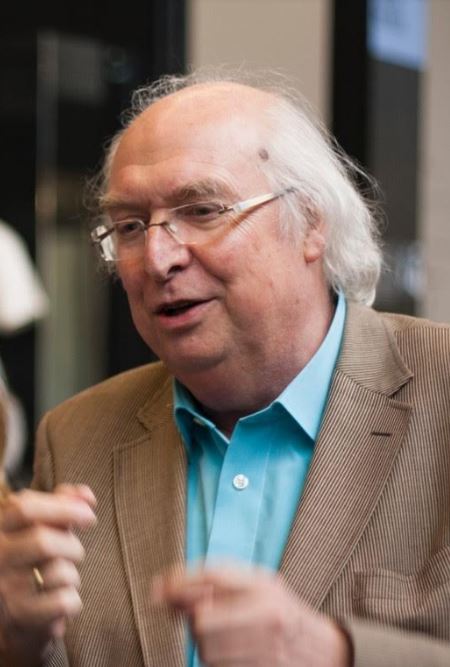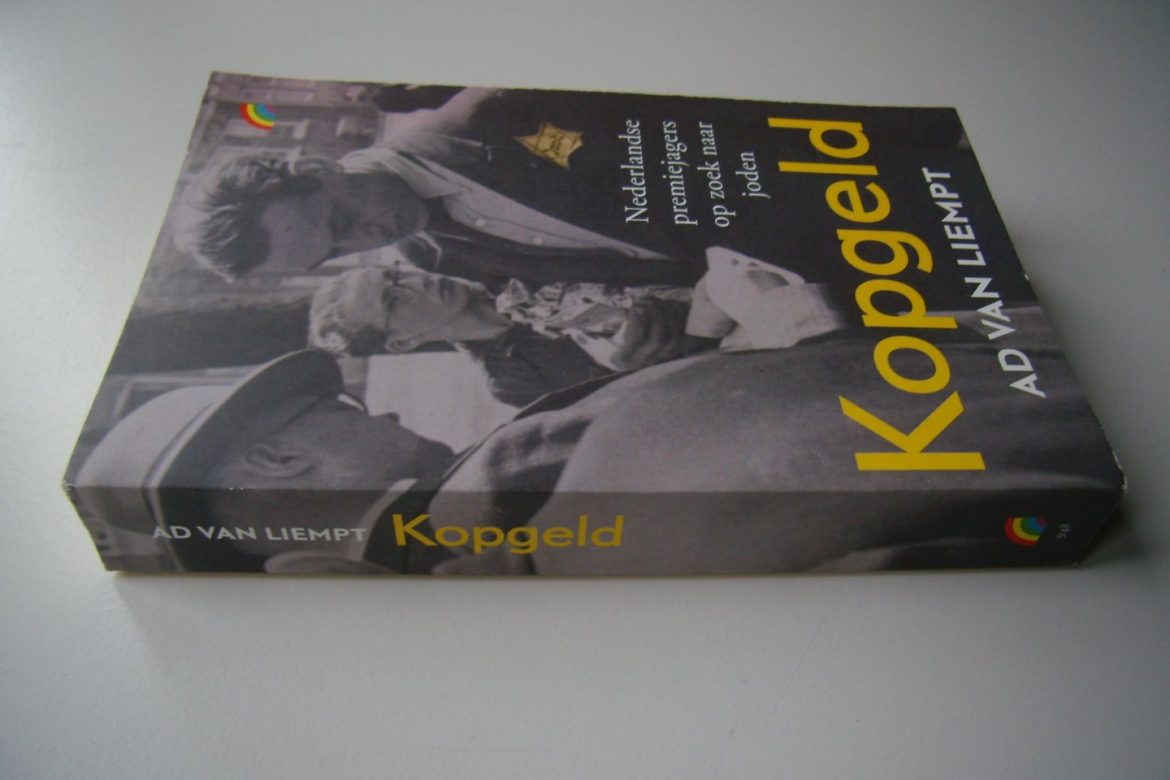Dr.Gerstenfeld’s interview with Dutch historian Ad van Liempt was first published at Israel National News, and republished here with the author’s consent.
The Dutch Jew Hunters who massively helped the Nazi Occupiers
Manfred Gerstenfeld interviews Ad van Liempt
 “When I stopped working in 2010 the National Archive proposed that I study the Central Archive of the Post-war Special Court. These contain the investigation and punishment files of the Dutch citizens who most strongly collaborated with German occupiers.
“When I stopped working in 2010 the National Archive proposed that I study the Central Archive of the Post-war Special Court. These contain the investigation and punishment files of the Dutch citizens who most strongly collaborated with German occupiers.
“In 2000 this not very orderly archive became publicly accessible and thus available for research. My earlier research there led to my 2002 book, Kopgeld, Nederlandse premiejagers op zoek naar Joden. (Money per head, Dutch premium hunters searching for Jews). After reading the first individual files I had to go outside for some fresh air. These documents contain such horrible things that I asked myself ‘How is it possible that this is not generally known?’
Photographer: Mike van Breemen.
Ad van Liempt, a journalist and historian, was born in 1949 in Utrecht. He has written 21 books. Several of these concern the Second World War.
“Hanns Albin Rauter, an Austrian, was the highest SS officer in the Netherlands. He proposed to offer premiums for arresting Jews in a cable to Heinrich Himmler, the SS’ highest commander. Giving such premiums to specific Jew-hunters, — policemen and volunteering citizens — has, as far as I know, not taken place in any other country. This partly explains the relatively high number of Jews arrested in the Netherlands.
‘The private Jewish head hunters of the so-called Henneicke Column – named after its leader — arrested 8500-9000 Jews. Kopgeld deals with them. Similar numbers were arrested by special units of the Dutch police. According to my cautious calculations, approximately 15,000 Jews were arrested by specific Jew hunters. This number is substantially higher than that published by earlier historians. Some of the Jews arrested avoided deportation to Eastern Europe by escaping.
“Another book I wrote with a group of young historians. Published in 2012 it is titled Jodenjacht, de onthutsende rol van de Nederlandse politie in de Tweede Wereldoorlog. (Hunting Jews, the Shocking Role of the Dutch Police in the Second World War). This book deals with the search for Jews by special police units. Only the most motivated policemen were chosen. Almost all belonged to the Dutch Nationalist Socialist Party (NSB). One policeman said: ‘This is no work for me.’ He withdrew and wasn’t punished. This illustrates that the hunt for Jews was executed by a small group of fanatical Dutch policemen. They thus participated in the illegal process of hunting innocent citizens who would later be killed.
“The hunt didn’t only concern Jews in hiding – or members of the resistance. The policemen also arrested for instance Jews who hadn’t followed orders to report for arrest. The police were often tipped off. We investigated 250 files of these policemen and tried to find the names of their victims. It is important for surviving family members to know how their parents or grandparents were arrested and by whom. This is equally true for people in the resistance.
‘We also tried to elucidate how the hunt for Jews and resistance fighters had been carried out by the police. Investigating the worst policemen creates a somber view of humanity. I always say to people: “Don’t read this book before you go to sleep.’ Overall, probably more Dutch policemen were ‘good’ rather than ‘evil.’”
As to the refusal of the Dutch government to offer apologies to the Jewish community for the failure of its war time predecessors in exile in London, Van Liempt says: ‘I cannot understand why successive Dutch governments have had so much difficulty to admit this failure and still have not offered apologies. Our political leaders are not often generous when it comes to apologies.
“We are good at blurring issues. Dutch society is structured around this. Our elite has been particularly good at using language which conceals. Just one example: In 2005, the then Dutch Minister of Foreign Affairs, Ben Bot said that the Netherlands had been on the wrong side of history concerning Indonesian independence. He used a beautiful expression which simultaneously was a highly diluted way of admitting the truth.
“Difficulty in admitting mistakes is part of human nature. This attitude is highly developed in the Netherlands. Also, no one wants to be responsible for words that may have financial consequences. We must be indefatigable in presenting facts upon which people can form a judgment. One can only regret that the Dutch authorities act so cowardly about these issues.”
Van Liempt concludes: “I’m now working on a biography of Albert Gemmeker, the German commander of Westerbork. This was the transit camp in the Netherlands from which most Dutch Jews were sent to Eastern Europe to subsequently be murdered. It is surprising that a man who was responsible for the deportation of 80,000 Jews has been condemned by a Dutch court to only ten years of jail. After six years he was freed and returned to Dusseldorf in Germany. He lived there 31 years, a man with such guilt.”

